Search
Remove Ads
Advertisement
Summary 
Loading AI-generated summary based on World History Encyclopedia articles ...
Search Results
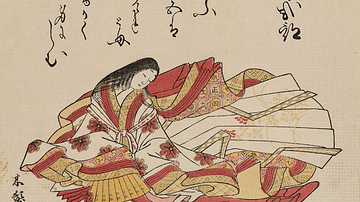
Definition
Izumi Shikibu
Izumi Shikibu was a writer, poet, and member of the Japanese court during the Heian Period (794-1185 CE). Her birth date is variously given as sometime in the 970's CE, and she died in the 1030's CE. In her celebrated memoirs, known as the...

Image
Izumi Shikibu
A 1765 CE print depicting the 11th century CE Japanese poetess Izumi Shikibu (Museum of Fine Arts, Boston, USA)

Definition
Tale of Genji
The 'Tale of the Genji' or Genji Monogatari, written in the 11th century CE by Murasaki Shikibu, a court lady, is Japan's oldest novel and possibly the first novel in world literature. The classic of Japanese literature, the work describes...
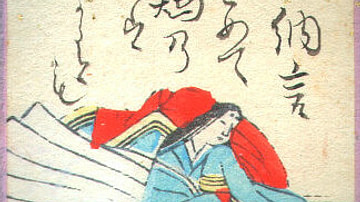
Definition
The Pillow Book
The Pillow Book (Makura no Soshi) is a personalised account of life at the Japanese court by Sei Shonagon which she completed c. 1002 CE during the Heian Period. The book is full of humorous observations (okashi) written in the style of a...
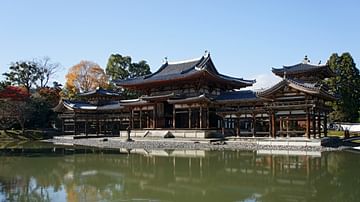
Definition
Heian Period
The Heian Period of Japanese history covers 794 to 1185 CE and saw a great flourishing in Japanese culture from literature to paintings. Government and its administration came to be dominated by the Fujiwara clan who eventually were challenged...
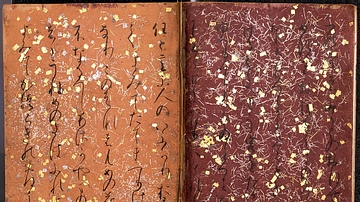
Definition
Ono no Komachi
Ono no Komachi was a poetess of great renown during the Heian Period (794-1185 CE) of ancient Japan. The Kokinshu anthology, compiled in 905 CE, contains many of her poems, and her work and life inspired later writers of Noh drama. She is...

Video
Japan: Cultural History and the Heian Period
John Green describes the Heian period in Japan, lasting from 794CE to 1185CE. The Tale of Genji by Murasaki Shikibu was the classic piece of literature of the day, detailing the elite, aristocratic culture of the Heian period.

Video
Heian Literature and Japanese Court Women
This short lecture discusses about two of the most famous works of literature in Japanese history, both written by court women during the Heian period (794-1185CE): Murasaki Shikibu’s "The Tale of Genji" and Sei Shonagon’s "The Pillow Book"...
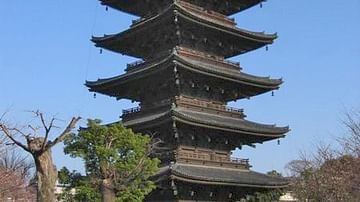
Definition
Heiankyo
Heiankyo (Kyoto), located in the centre of Honshu island, was the capital of Japan for over a thousand years and gave its name to one of the golden ages of Japanese history, the Heian Period (794-1185 CE). Built according to Chinese design...
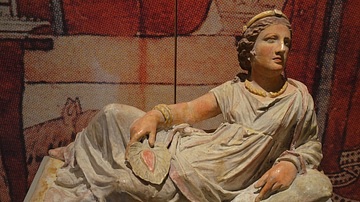
Collection
Women in the Ancient World
In many cultures of antiquity women had to battle the disadvantages of rules and conventions made for men and by men who dominated government, public life, and society. Nevertheless, many ancient religions had powerful female goddesses like...